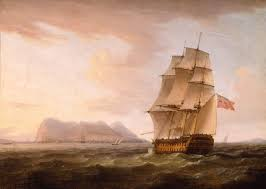The Navigation Acts
Mercantilism
Mercantilism was an economic theory that promoted regulation of the economy by the state for the purpose of consolidating state power. The main purpose was to generate a trade surplus and fill the treasury with silver and gold. The dominant school of economic thought between the 15th and 18th centuries, Mercantilistism rejected free trade and fostered European imperialism. Mercantilism led to wars between the great European powers for control of sea trade routes, like the Anglo-Dutch wars of the 17th century and the 18th century. It also created the North Atlantic Triangular Trade, which included the export of raw materials from the colonies to Britain, the transport of enslaved Africans to America, and the importation of manufactured goods from Britain to the colonies. British economic policy was essentially mercantilist. The British Parliament enacted mechanisms such as protectionist trade barriers, government regulation, and subsidies to domestic industries to strengthen Britain's finances at the expense of colonial and other European imperial powers. England also tried to prevent its North American colonies from trading with other European countries and developing strong manufacturing industries. To this end, in 1651 the British Parliament passed a series of laws known as the Navigation Acts.

The Navigation Acts and the American Revolution
As the English Civil War drew to a close, the British sought to reimpose control over colonial trade relations. In 1651, the British Parliament, in the first of what became known as the Navigation Acts, declared that only English ships would be allowed to bring goods into England and that the North American colonies could only export its commodities, such as tobacco and sugar, to England. The groups most negatively affected by the Navigation Acts—colonial manufacturers and merchants; tobacco, rice, and sugar planters; and artisans and mechanics—were all central actors in prerevolutionary anti-British agitation. The passage of the Navigation Acts thus contributed to rising anti-British sentiment and the eventual outbreak of the American Revolution.
. 